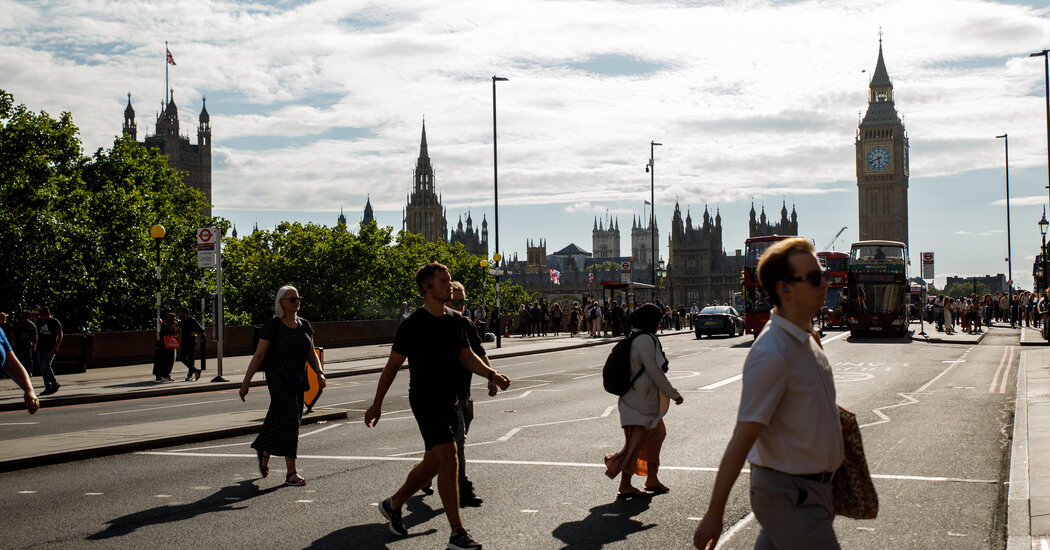Ms. Reeves accused the Conservative Party of making spending commitments on plans such as road repairs and building new hospitals “knowing the money wasn’t there.” Some of those plans would scrapped or reviewed. “Today she will fool absolutely no one with a shameful attempt to lay the ground for tax rises she didn’t have the courage to tell us about,” Jeremy Hunt, the previous chancellor, said in response to Ms. Reeves’s statement in Parliament.
Rachel Reeves, the chancellor of the Exchequer, said on Monday that there was a hole of 22 billion pounds (about $28 billion) in the country’s coffers this year because spending needs had exceeded expected revenue. To begin plugging the gap, she announced a series of measures to cut about £5.5 billion this year and another £8 billion next year, including reducing spending on consultants and a previously announced decision to end a program to deport asylum seekers to Rwanda.
[A] substantial part of the spending gap comes from the Labour government’s plans to increase public sector pay. Ms. Reeves said she had accepted recommendations from independent review bodies to increase public sector wages about 6 percent this year, adding £9 billion to the budget. She said government departments would need to find up to £3 billion worth of savings to help pay for this.
With a strict eye on bringing debt levels down, Labour scaled back green investment plans and withheld committing to big public spending projects even before the election. Now it is sticking to this restraint. The government has said it would need to lean heavily on private sector investment to expand the economy.
Economists and other analysts, including the Institute for Fiscal Studies, have argued that these cuts did not seem deliverable and that neither of the main political parties was honest before the election about the scale of the pressures on the public finances, which would require either spending cuts or tax increases. Last week, Ben Zaranko, an economist at the institute, said that “a reckoning with the fiscal reality was inevitable.”



If they’re going for Austerity part 2 and not solving any of the real issues like affordable housing, the next elections are going to be weird. Nigel Farage weird.